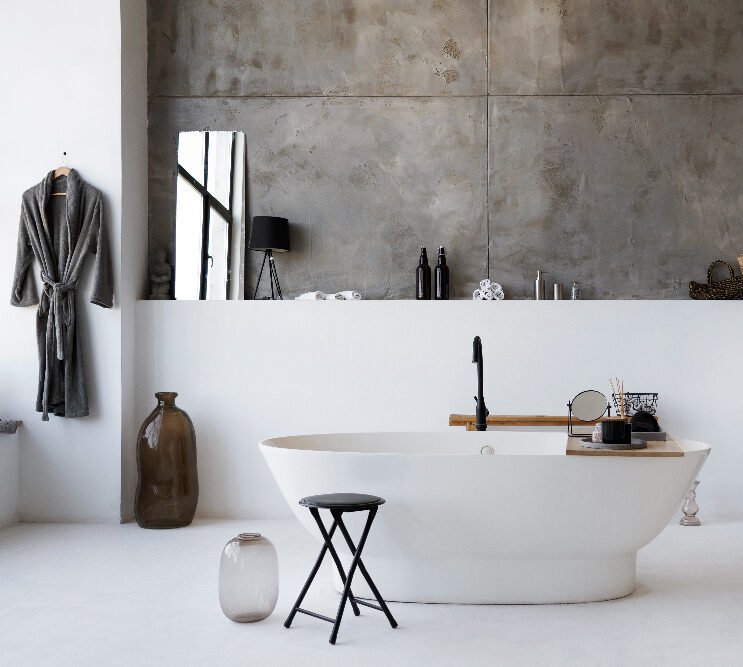When planning a bathroom renovation, homeowners often wonder about the financial implications of such a project, particularly when it comes to taxes. While renovations can be a significant investment, understanding the potential tax benefits associated with these improvements can enhance your overall financial strategy. For expert guidance and top-notch service, fill out the form, and we will reach you out to you shortly or just call us +1(646)9958888. This article delves into the intricacies of whether you can claim bathroom renovations on your taxes, diving into various scenarios like primary residences, rental properties, and specific tax credits that might apply.
Understanding Home Renovation Tax Implications
Generally, the IRS does not allow homeowners to deduct the costs of renovations from their personal residences. Unlike home repairs, which are considered necessary maintenance and sometimes deductible, renovations are seen as improvements that usually increase the value of the home.
Personal Residence vs. Rental Properties
The tax treatment of renovations varies significantly based on whether the property is your primary residence or a rental property.
Primary Residence: For most homeowners, any expenses related to bathroom renovations in their primary residence cannot be claimed as a tax deduction. These contributions are viewed as personal expenses.
Rental Properties: If you own a rental property, bathroom renovations can be seen differently. Expenses for improvements made to a rental property may be classified as capital improvements. These costs can often be depreciated over time, allowing landlords to deduct a portion of the expense on their tax returns annually. This depreciation can result in significant savings over the years, especially for substantial renovations.
Capital Improvements Defined
Capital improvements are defined by the IRS as upgrades that enhance the property’s value, prolong its useful life, or adapt it to new uses. Renovating a bathroom typically qualifies as a capital improvement, provided the changes increase the property’s value. Common examples of capital improvements include:
- Installing new plumbing or electrical systems
- Adding or expanding bathrooms
- Upgrading fixtures and finishes
- Structural enhancements like extending walls or creating new layouts
These improvements can increase the tax basis of your property, which is the value used to calculate any profit if you eventually sell the property. Therefore, they may reduce your capital gains tax when you sell the property.
Tax Credits and Deductions
In some cases, bathroom renovations can qualify for specific tax credits or deductions, although these opportunities are often limited and subject to various conditions.
Energy-Efficient Improvements
If your bathroom renovation involves enhancing energy efficiency, such as installing energy-efficient lighting or water-saving fixtures, you may qualify for tax credits. The federal government and some states offer credits for energy-efficient home improvements, which can significantly offset renovation costs.
Medical-Related Renovations
Another unique scenario arises when renovations are necessary for medical reasons. If you are making changes to your bathroom to accommodate a medical condition—such as installing grab bars, wheelchair ramps, or other accessibility modifications—you may be able to deduct these expenses on your tax return under medical expense deductions. However, it is essential to keep detailed records and receipts to substantiate these claims.
Keeping Detailed Records
Regardless of the type of property you own, keeping thorough records is crucial. Documenting the costs associated with your bathroom renovation—receipts, invoices, and photos—will help you if you decide to carry out deductions or credits in the future. This documentation is particularly important if you plan to sell your home, as having a clear record of improvements can not only help with taxes but also support your home’s value.
Conclusion
While the typical homeowner may not be able to claim bathroom renovations as a direct tax deduction, various nuances exist depending on property type and the nature of the renovations. For rental property owners, renovations can lead to depreciation deductions, while certain energy-efficient or medically necessary improvements may offer tax credits.
If you are considering a bathroom renovation, it is wise to consult with a tax professional or accountant. They can provide tailored advice and help navigate the complexities of tax laws as they pertain to your specific situation. With careful planning and research, you can make informed decisions that enhance your living space while potentially benefiting your tax situation in the long run.
